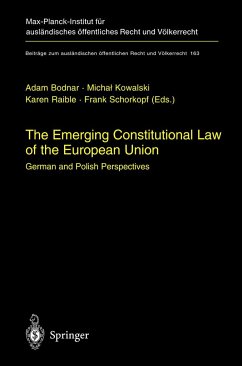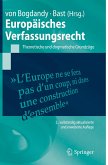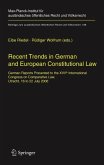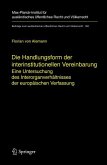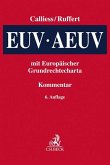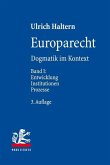Every year there are new and exciting developments in assisted human reproduction, but how much do we really know about the underlying causes of infertility? This volume explores recent progress in the understanding of the genetics of spermatogenesis and male infertility. Topics include fundamental advances and current problems in the development and function of the testis, an outline of clinical findings in male infertility and an overview of the role of the Y chromosome in male fertility. Comprehensive critiques of posttranscriptional control during spermatogenesis, mammalian meiotic sterility, and comparative genetics of human spermatogenesis from the perspective of yeast, Drosophila and mice provide a global overview of the field.
Young lawyers from different academic centres in Germany and Poland comment on the ongoing constitutional debate in the EU. Each of the more than 20 articles is dedicated to a specific theme, i.e. human rights, institutional design, current and future function of the EU, homogeneity and identity, security and defence policy, home policy and common values. Similarities as well as differences in the perspectives of an old EU Member State on the one hand and an EU Member State-to-be on the other hand are revealed.
Hinweis: Dieser Artikel kann nur an eine deutsche Lieferadresse ausgeliefert werden.
Young lawyers from different academic centres in Germany and Poland comment on the ongoing constitutional debate in the EU. Each of the more than 20 articles is dedicated to a specific theme, i.e. human rights, institutional design, current and future function of the EU, homogeneity and identity, security and defence policy, home policy and common values. Similarities as well as differences in the perspectives of an old EU Member State on the one hand and an EU Member State-to-be on the other hand are revealed.
Hinweis: Dieser Artikel kann nur an eine deutsche Lieferadresse ausgeliefert werden.

